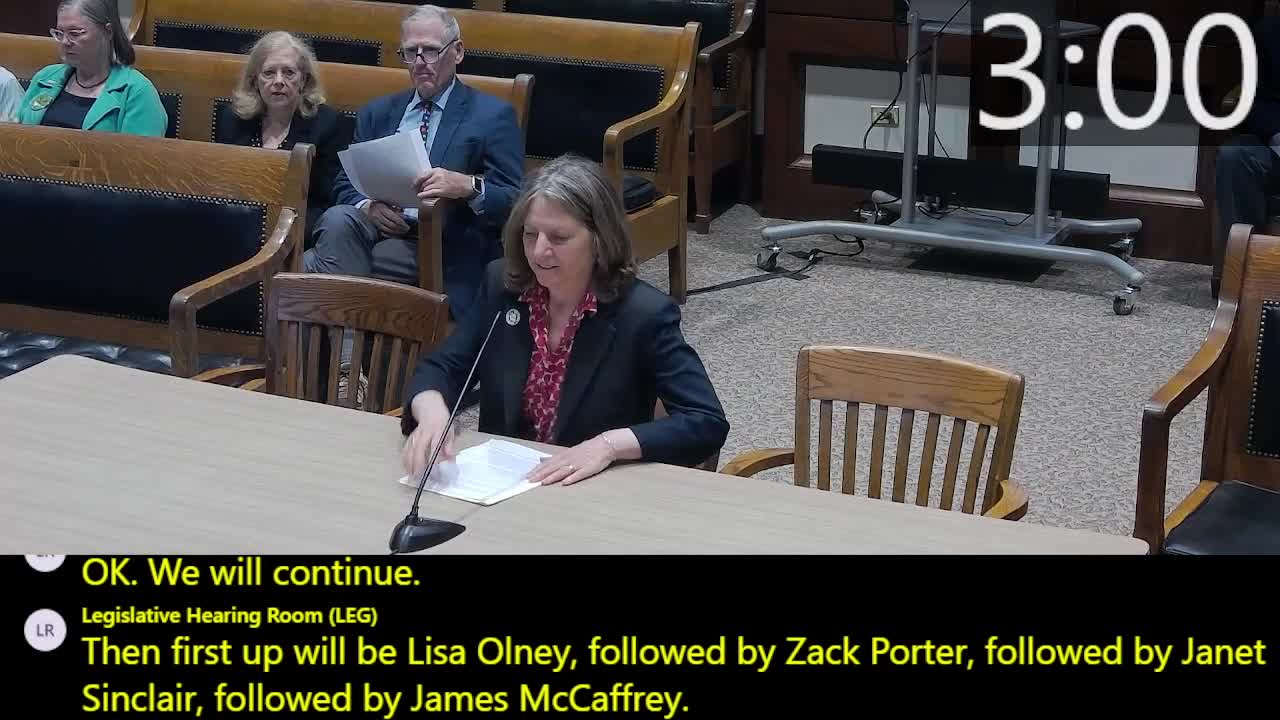Advocates Push $100M Municipal Reforestation Fund to Cool Cities and Boost Equity
Get AI-powered insights, summaries, and transcripts
Subscribe
Summary
Community groups, municipal staff, and conservation organizations urged the committee to create a permanently funded municipal reforestation program (H.1013 / S.553) to expand tree canopy—especially in environmental‑justice neighborhoods—and support nursery capacity, job training, and long‑term maintenance.
Dozens of municipal leaders, tree wardens and nonprofit groups told the joint committee that a dedicated municipal reforestation program would deliver public‑health, climate and economic benefits and help target investments to neighborhoods with low canopy.
Speakers including Lisa Olney on behalf of Wellesley’s Climate Action Committee, Celeste Fanolia of the Sierra Club Massachusetts chapter, and representatives of the Mass Community Trees Coalition described H.1013 / S.553 as a vehicle to (1) create an urban forest advisory council, (2) fund municipal reforestation trust accounts, and (3) prioritize plantings in environmental‑justice and heat‑vulnerable neighborhoods.
Advocates requested $100 million for the program and asked that the bill include requirements that preserve existing trees as well as plant new ones. Testimony emphasized that tree planting is a long‑term investment that requires funding for planting, multi‑year maintenance (watering and care) and local technical assistance; several witnesses said lack of maintenance capacity is a primary reason street and yard trees die after planting.
Speakers cited public‑health and economic co‑benefits: reduced heat‑related illness, lower energy bills for cooling, improved air quality, jobs in tree nurseries and urban forestry crews, and youth workforce programs such as Canopy Crew. The bill would also encourage nurseries to scale up local production.
Committee members asked about the bill’s proposed trust fund and how it would be capitalized; witnesses pointed to multiple possible sources including the governor’s bond proposals, future climate‑polluter funds, and state appropriations. No action was taken at the hearing, and witnesses were invited to submit implementation details.
Why it matters: urban canopy is uneven across municipalities; testimony emphasized that canopy deficits concentrate in environmental‑justice communities that face higher heat exposure and respiratory illness rates. Supporters argued that state investment would yield measurable health and fiscal returns.
Next steps: proponents said they will submit implementation plans, nursery capacity analyses, and pilot examples to the committee for consideration.
